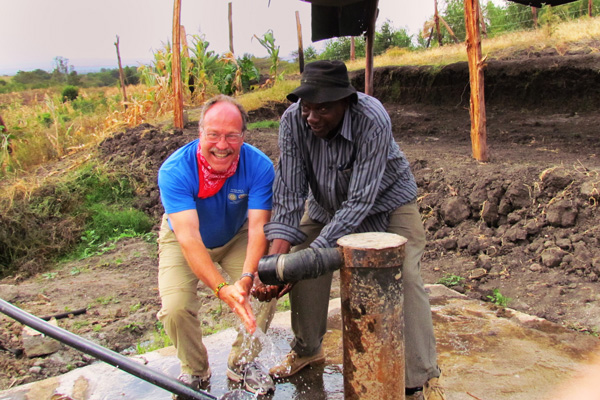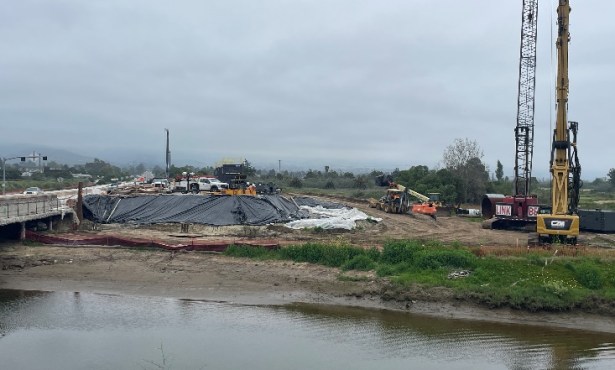Rotary Club of Santa Barbara North Brings Clean Water to Village in Kenya

Thanks to the Rotary Club of Santa Barbara North (RCSBN), women and children, who previously traveled as far as five miles a day to fill their 20-liter water cans, now walk less than a half-mile to the central well that provides water for the entire village. With potable water more easily available, they now have time for other activities, such as farming, raising livestock, basket weaving, and school for the children.
The Ngu-Nyumu well project began providing water last March to the remote village situated about 50 miles southeast of Nairobi, and Joe Lanza, director of international service for RCSBN, attended a dedication ceremony on July 2. The celebration featured speeches by a variety of dignitaries, including the assistant chief of the village.
The project itself was the brainchild of Jim Lisi, the former international service chairperson for RCSBN. Lisi had been looking for a clean water project, and happened upon Global Water, an Oxnard-based nonprofit organization that had completed several water projects in Central America and elsewhere. Through the Global Water organization, Lisi met Evie Treen, founder of Friends of Woni International, Inc., a nonprofit aimed at helping the needy in Kenya.
Treen is also the owner of Vision Adventure Safaris, a United States affiliate of Woni Safaris, a Nairobi company owned by William Muli and Christopher Nthiani. Both Muli and Nthiani grew up in the village of Ngu-Nyumu. “When Jim found out about the need for water in this village, he brought the project back to RCSBN, which began to raise funds,” said Lanza.
RCSBN raised $20,000 from its own members, with additional funds from Ansbach, Carpinteria Morning, and Nairobi-Langata Rotary Clubs, as well Rotary district and international matching grants. Engineers and geologists were hired to confirm the presence of a water aquifer, and to carry out the work. In addition to being a source of potable water for the villagers, the well provides water for irrigating the area around and immediately below the well site. A faucet is monitored daily by an agent of the Woni Initiative Development Project (WIDP), and funds are collected at the rate of five Kenyan shillings (about six cents) per 20-liter can. WIDP is the local community-based organization for administration of water usage. It has implemented community rules for the use of the water, and plans are currently being formulated to establish fish farms, and to plant bamboo, Marengo trees, and other sustainable crops.
The next phase of the project will involve distributing the water to a wider geographical area. This will require a pump strong enough to move the water up to a nearby ridge, a generator, two large holding tanks, and various pipes, valves, and faucets. Once water can be stored on the ridge, it will have the potential to reach several thousand additional people, including a nearby primary and secondary school complex that serves over 600 children, but has no water source on site.

